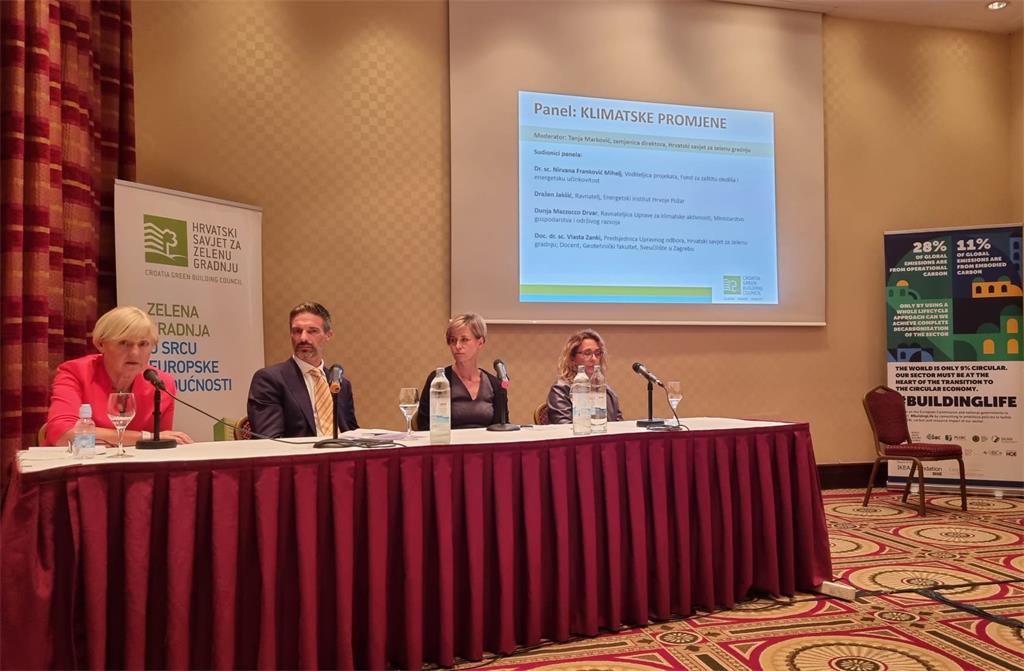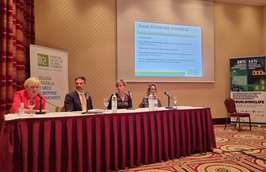06.10.2021.
As part of the 16th International Conference on Real Estate Development, a panel on climate change was held discussing the challenges, options and solutions, with participation of Nirvana Franković Mihelj, PhD, a project manager at the Environmental Protection Sector.Apart from Mrs Franković Mihelj, other participants in the conference, held in the Esplanade Hotel, included: Dražen Jakšić, the CEO of Energy Institute Hrvoje Požar, Dunja Mazzocco Drvar, the head of the Directorate for Climate Activities at the Ministry of Economy and Sustainable Development, and Vlasta Zanki, PhD, president of the Board of the Croatia Green Building Council and associate professor at the Faculty of Geotechnical Engineering of the University in Zagreb.
The panellists discussed Croatia’s position in the process of achieving decarbonisation and green transition goals. Achieving a decrease in the emissions of harmful gasses in accordance with the European Commission plan to become climate neutral by 2050 was underlined as a key element in adapting the national legislation and processes in the industry. Mrs Franković Mihelj pointed out that the Fund, as the national institution collecting extrabudgetary revenues on the “polluter pays” principle, was feeding these resources back into the system by implementing the measures and activities set out in strategies and accompanying action plans through its public calls and calls for proposals, aimed at achieving the goals set by national policies, which were at the same time contributing to the transition to a competitive low-carbon economy and society in general.
“2bn kunas have been planned in the next 3-year period. Energy efficiency is vital for a stable future in the energy sector as well as renewable energy sources, and for a more ambitious goal of a climate-neutral society by 2050, it will not be sufficient to simply “green” the energy sector; the solution will have to be sought in the non-energy sectors, and sinks in the Land use, land-use change, and forestry sector (LULUCF) will have to be increased to achieve zero emissions by 2050,” explained Franković Mihelj.
The Fund, in cooperation with the competent ministry, is continually investing in this sector, and the results of research are directed at sustainable management of land categories in order to maintain the current sinks and their enhancement. Flexible mechanisms, such as the sinks trading scheme (ETS), should facilitate the Member States in complying with their obligations regarding the maintaining/enhancing sinks and reducing GHG emissions in the LULUCF sector.








.jpeg?preset=gallery_carousel)
.jpeg?preset=gallery_carousel)